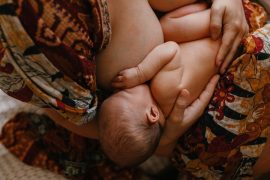By Hannah Schenker
Hundreds of delegates gathered in Geneva for the United Nations-affiliated World Health Assembly expected a resolution to encourage breastfeeding to be easily and quickly approved. However, the US delegation, in the interests of infant formula manufacturers, turned everything on its head, according to this report in the New York Times.
The resolution is based on decades of research, which says that mother’s milk is healthiest for children, and that countries should work hard to limit the inaccurate or misleading marketing of breast milk substitutes (formula). Sounds straightforward and obvious, right? Apparently not.
US officials wanted to “water down the resolution” by changing the language, removing a passage that “called on governments to ‘protect, promote and support breast-feeding'” and also wanted to remove a passage that called for the restriction of “the promotion of food products that many experts say can have deleterious effects on young children”.
“The intensity of the administration’s opposition to the breast-feeding resolution stunned public health officials and foreign diplomats, who described it as a marked contrast to the Obama administration, which largely supported W.H.O.’s longstanding policy of encouraging breast-feeding,” the New York Times reports.
Amazingly, when that failed, the Americans turned to threats – according to diplomats and other officials present. Ecuador, who had planned to introduce the measure, were first in the firing line.
“The Americans were blunt: If Ecuador refused to drop the resolution, Washington would unleash punishing trade measures and withdraw crucial military aid. The Ecuadorean government quickly acquiesced.”
More than a dozen participants from various countries confirmed these reports, though many of them requested to stay anonymous for fear of retaliation by the US.
When Ecuador dropped the resolution, health advocates were left scrambling for a replacement sponsor, but many of the other countries declined and backed off, also in fear of retaliation from the US. These were mostly poor and developing nations in Africa and Latin America.
“What happened was tantamount to blackmail, with the U.S. holding the world hostage and trying to overturn nearly 40 years of consensus on the best way to protect infant and young child health,” said Patti Rundall, the policy director of the British advocacy group Baby Milk Action, who has attended meetings of the assembly, the decision-making body of the World Health Organization, since the late 1980s.
See next page for more…











